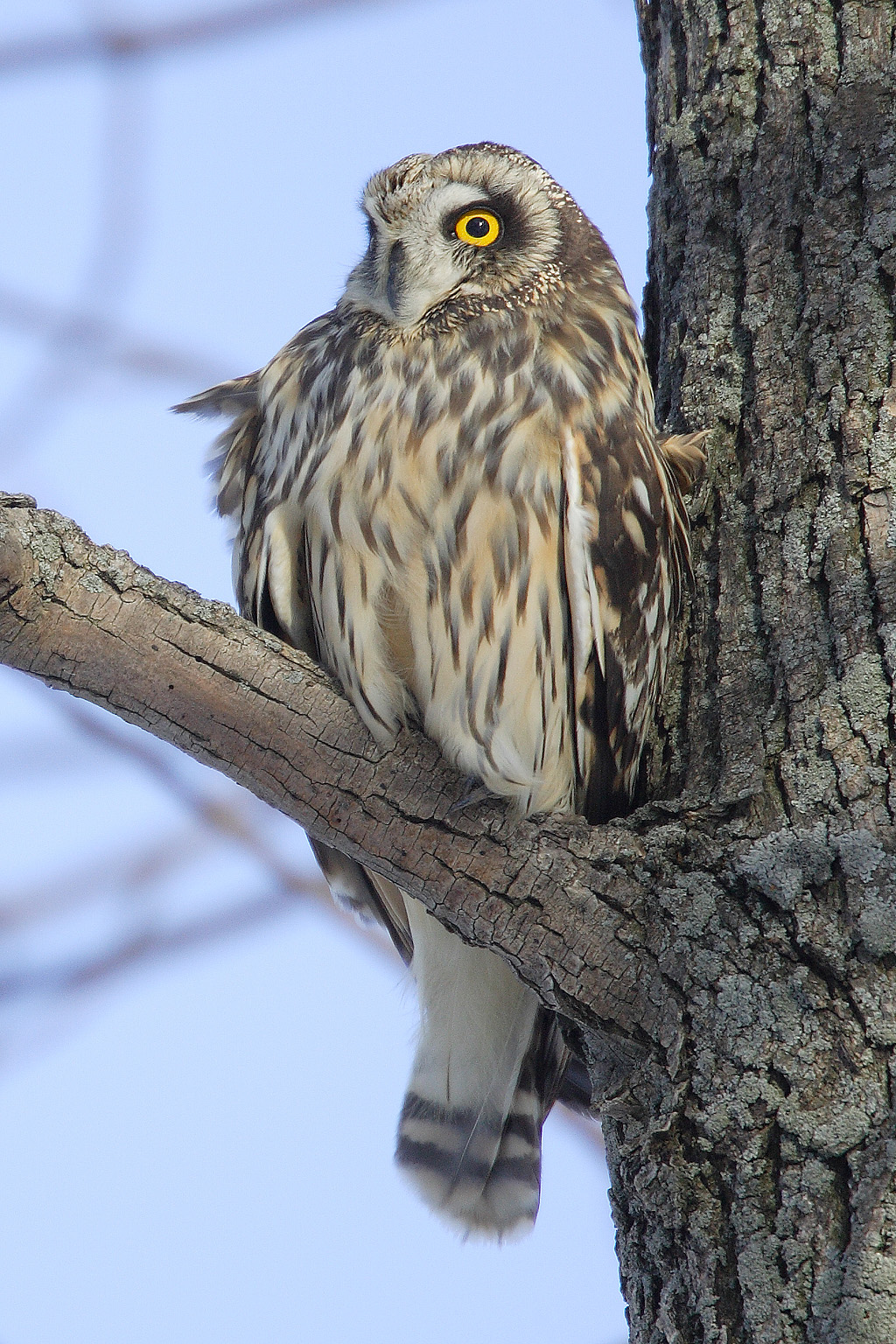Floyd and Grady succeed brilliantly creating a new Feechie scare. Grady does much of the legwork, tromping around through the forests at night to set off the noise maker, shoot arrows into barns and even moving wagons, and shout Feechie war cries. Grady witnesses first hand the terror that the noise maker can create. While out in the woods leaving Feechie signs one night, some hunters and their dogs tree Grady, thinking he is a raccoon. When the hunters start to chop down the tree, Grady sounds the noise maker. The hounds run away yelping and the hunters follow closely behind. Grady also demonstrates his ingenuity. He hangs the noise maker in a stand of pines with ropes and pulleys such that when the wind blows, the noise maker will sound its horrible bellowing. One night in the woods, Grady hears a strange cry that he knows must be a bog owl. According to Feechie folklore, the Feechies use that call to signal to one another. Grady is thrilled to finally hear something about which he has heard so much talk. At the Middenmarsh stock market, Grady's Feechie antics convince cattle drovers from all over Corenwald that the Feechies are on the move. Everyone is talking about Feechies and Floyd and Grady are able to revive the Feechie act. However, people are no longer just curious about Feechies. The scare has worked a little too well, and people are now frightened of Feechies to the point that they are prepared to do violence to them. Floyd and Grady make some alterations. Floyd ties a rope around Grady when he's in Feechie costume so that the villagers won't be afraid that he'll get away and kill them. Grady again feels that he is doing honest acting work.
As Floyd predicted, giving people a little push in the right direction is all it takes to manipulate public opinion. People want a show, and many will give up a few coppers to be entertained. As I was reading The Charlatan's Boy, I was struck by the similarities between writers and hucksters like Floyd. Both try to entertain. Both make things up and attempt to render a bunch of lies believable. Perhaps a writer is simply an honest huckster, one that admits that what he is selling is fiction.
 |
| Short-eared Owl, also known by |
| the common name Bog Owl. |
The revelations in the novel's final chapters cast an ironic light on the story. Rogers has masterfully plotted his story, laying a field of mines that all go off when Grady's true identity is revealed. The story we thought we were reading becomes a different story. Floyd's most unbelievable tale about Grady's past is true and Floyd is shown to be a cruel liar. Grady feels such an affinity for playing a Feechie because he is a Feechie. Much of the folklore that Floyd and Grady use to add authenticity to their act has a basis in fact. As Grady's story suggests, the roots of myth and legend are often sunk in reality, a forgotten reality that seems too fantastic to believe.
Photo Credit: Short-eared Owl -- Amherst Island, Ontario, Canada -- 2006 February. Attributed to Mdf. This file is licensed under the Creative Commons Attribution-Share Alike 3.0 Unported license.
In conjunction with the CSFF Blog Tour, I received a free copy of The Charlatan's Boy from the publisher.
To learn more about the Jonathan Rogers, visit his website at http://jonathan-rogers.com/.
To learn what the other CSFF bloggers are saying, follow the links below:
Good job, Jeff. You have a knack for summarizing the story.
ReplyDeleteInteresting thoughts about writers in comparison to charlatans. I don't think I agree, though. Not only to novelists make clear up front that their entertaining story is made up, we also fill it with truth, or aim to do so as best we can. I think the charlatan's only concern is how thoroughly he can hook the crowd in order to separate them from their money. If the truth does it, fine, but if a lie does it better, then he'll go with the lie.
Becky
I don't want the ending spoiled, as I'll be adding this one to my reading queue; you sure have a way of keeping it full!
ReplyDeleteIn other news, I'm going to read your 3.1K tonight and get back to you tomorrow on it.